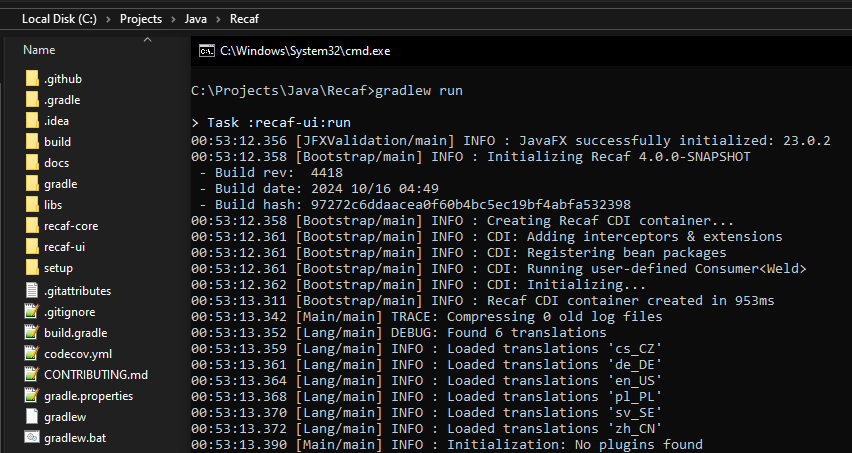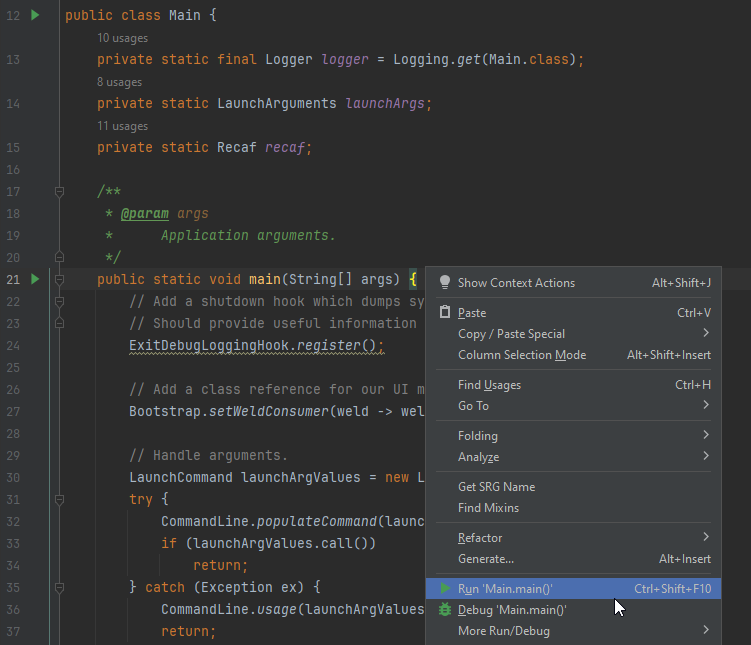Running
Running Recaf
Directly from Gradle / Terminal

Windows terminal using the "gradlew run" command to run Recaf.
Use gradlew run. This will build Recaf if you haven't already done so, then launch the UI.
Directly from IntelliJ

Context menu showing the 'run' option in the Recaf main class.
Create an application run configuration with software.coley.recaf.Main as the main class. You can do this simply by opening that class in IntelliJ, right clicking to open a context menu anywhere in the code, and selecting the "Run" option with the green ▶️ icon.
Using Recaf as a command-line application
Recaf offers a number of command-line arguments (outlined in LaunchCommand). The main intended use for these is automation of tasks and loading input at startup.
| Argument | Description | Example |
|---|---|---|
-i or --input | Input to load into a workspace on startup. | -i game.jar |
-s or --script | Script to run on startup. | -s LoadContent.java |
-h or --headless | Flag to skip over initializing the UI. Should be paired with -i or -s. | -h -s GenerateReport.java |
When using --input the target file is any file that you want to open in Recaf (The same way you would do so via the file menu, or by drag-and-drop).
When using --script the target file is a Recaf script file.
- If you use
--inputwith--scriptthen the script will be run after the workspace is loaded from the given input.
When using --headless it is assumed you are also going to use --script to automate some task without needing to launch any user interface.